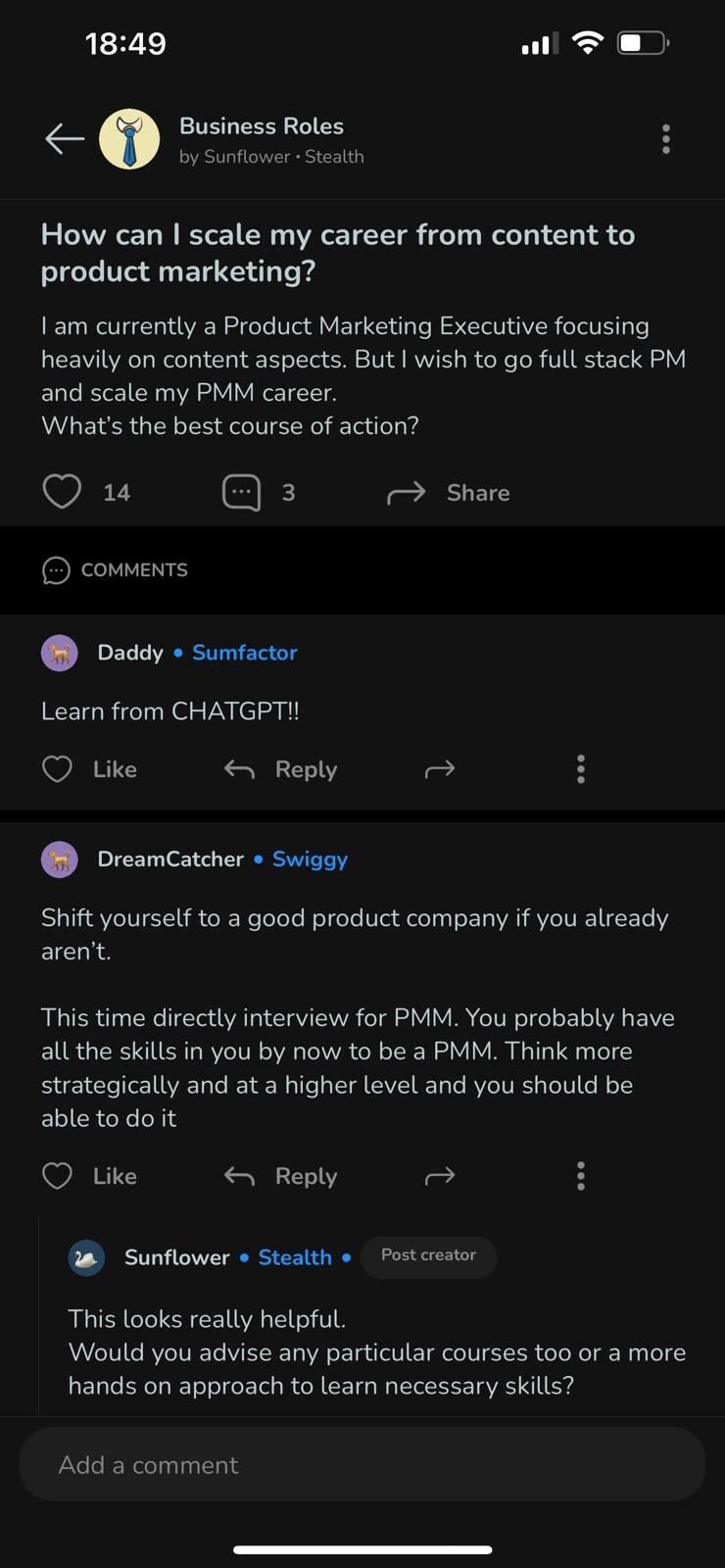
Pseudonymity helps to avoid discrimination and cancellation, but also limits personal influence as the domain name – rather than the person – is typically linked to the content. (Photo: Mason Kimbarovsky via Unsplash)
A year ago, Balaji Srinivasan, an angel investor, tech founder, and WSJ bestselling author of The Network State, spoke about the ‘The Pseudonymous Economy’. He was addressing the Cryptocurrency and Hayek Conference hosted by Coin Center and the Mercatus Center at George Mason University. In his talk, Balaji predicted: “People will be known more by their crypto domains than their real names,” adding that “AI and blockchain are changing the fundamental way we are representing ourselves online.”
The pivotal moment (to me) in this talk is when (towards the end) Balaji talks about transferring reputation to a pseudonym. That got me thinking, while the concept of pseudonymity is spoken of mostly from a crypto and Web3 perspective, it is quite prevalent on social media platforms such as Twitter, Reddit and YouTube, as well.
However, for platforms such as Twitter or LinkedIn that are built for individuals to feel like micro-celebrities, what happens when an individual is no longer known by his/her real name? Does it create better social networks? Are individuals more authentic and is there more trust?
Let us find out.
What is Pseudonymity?
Pseudonymity is when a name other than an individual’s real name is used to create an identity online.
This happens for the following reasons:
· The risk of cancellation is high when an individual starts becoming a huge brand online
· People create back-up identities or alt identities to be able to express their true selves and certain beliefs that they may not express through their personal accounts
The biggest difference between pseudonymity and anonymity is that people start recognising the account by the pseudonym and follow it for the content it creates. Examples include Dream, the YouTuber; IceFrog, the creator of Dota, a series of hugely popular strategy video games (this individual also has one of the oldest known pseudonyms); and the CarDealershipGuy, on Twitter.
While the concept started out with crypto and Reddit/Quora, it is now expanding beyond and is becoming mainstream on other social networks and professional career websites.
Pseudonymity is catching up in the professional networking space
At the time Balaji gave this talk, three youngsters working at highly reputed tech companies came up with an idea. A pseudonymous Discord server called ‘Corporate Chat India’, which would be a community of working professionals giving each other genuine professional advice. They started with a Reddit page and then moved to the Discord server (originally created for gamers to interact, Discord has today become a group-chatting platform for all kinds of communities). Today, the Corporate Chat India channel has grown to host 10,000 professionals.
Says one of the Founders of Corporate Chat India, anonymously: “We started for three reasons, 1) platforms like LinkedIn (despite having the largest number of professionals) do not give you genuine professional advice. 2) Review sites like Glassdoor seem to be mostly run by company admins. 3) Salary inflation over the last year has made it necessary for people to discuss CTCs openly, but no one could do that if they were using their real identities.”
So, what happens in this forum? People discuss their career, salary and the culture of companies. The biggest surprise is they were doing so positively, despite using pseudonyms. Till date, half a million messages have been exchanged on the channel. Says a user, “The quality of folks on the platform is great and the issues addressed are relatable. It is almost like a rite of passage as you know where to help and when you can seek help. As professionals, we need a third space to discuss our professional lives, and surprisingly, on a pseudo platform, we wear a mask and (yet) are our true selves!”
Here is an example of an interaction with career advice:

Corporate Chat India also has an active Twitter account and the team has now launched an app called Grapevine. The idea is to build for pseudonymity and make the interface easy. Their goal is for people in India to chat about workplace culture, salary transparency, career advice and interview tips.
The founder clarifies: “We do not want to be a nefarious platform; all we want is for clear communication and for people to help each other without restrictions. In a pseudonymous platform, there is no incentive for people to fake it. People are able to speak about personal issues freely and that makes this a powerful concept.”
A similar global use case
Blind is an anonymous app for the workplace. It is a place where over 5 million professionals worldwide share advice, provide honest feedback, improve company culture and discover relevant career information. The company is based in the United States and threads like the ones below are commonplace:
· Google’s management has reportedly issued a ‘code red’ amid the rising popularity of the ChatGPT AI
· Burn out – What were the things that helped you the most?
It is interesting to read through the comments, which are mostly from pseudonymous accounts. Very few to nil comments are derogatory or unprofessional. People share/add to an existing dialogue from their own experience and mostly exchange notes to help each other.
Fishbowl is another platform many professionals from the tech community use.
As Balaji put it in his talk, “The ‘pseudonymous economy’ prevents both discrimination and cancellation. Hundreds of millions of Reddit profiles are pseudonymous and this concept is already mainstream. In the United States, not only GenZ, but many baby boomers have pseudonymous accounts too.”

Coming back to our original question
So, will pseudonymity create better social networks and personal brands?
“Humans have a lot of reverence for legends,” says Varun Mayya, entrepreneur, investor, creator and software engineer, “It is hard to relate to a pseudonymous identity, but at the same time, it prevents an individual or their views from getting cancelled.”
Mayya believes that though nascent, this trend will pick up. Going forward we could see virtual people and 3D Avatars. Tools such as Synthesia.io are making it easy to create virtual people/identities. “We are on the path towards recreating the human being and this is only the beginning,” says Mayya. He recently invested in God In A Box, an AI platform that is a direct implementation of ChatGPT into WhatsApp.
While pseudonymity does have its use cases (in alt professional networks, on Twitter and in gaming), it is also a double-edged sword, as it allows individuals to be who they are, but limits the influence they can wield by not revealing their true identity. As humans, we still rely on relationships and the personal touch despite having huge ‘personal brands’ online. Therefore, even if a pseudonymous identity does create genuine content and becomes influential, its monetising potential or ‘human’ potential will stay limited unless the person behind the brand is revealed. After all, a personal brand is personal for a reason.

No Comments Yet